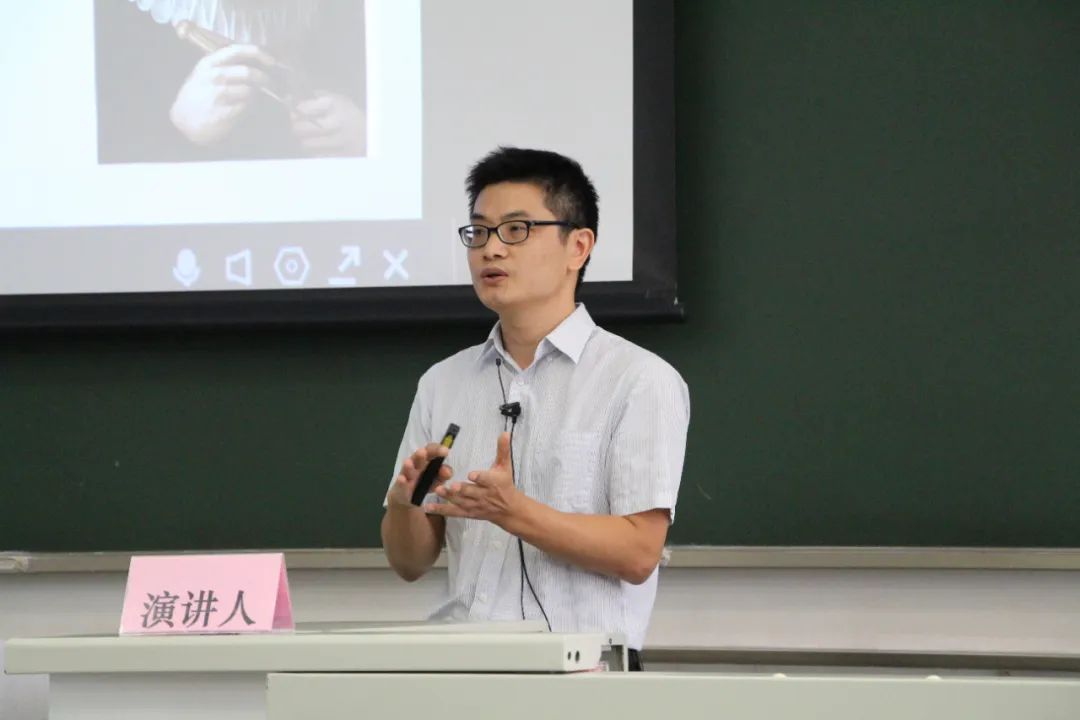In the afternoon of September 22, Li Hongjun, associate professor of the Institute of Economics of the School of Social Sciences, Tsinghua University, was invited to the Social Sciences Lecture Hall to give a speech themed "Applying Machine Learning Method in Econometric Analysis", where he explained to more than 100 offline and online teachers and students what is data analysis, machine learning and econometric analysis, and the application of machine learning methods in econometric analysis.

Keynote Speaker: Prof. Li Hongjun
Prof. Li Hongjun started his lecture with an explanation of why should we make data analysis. He pointed out that from an academic perspective, data analysis plays a crucial role in scientific knowledge discovery, and is of great benefit for finding laws and Verifying theorem in scientific research; from a practical point of view, data analysis is important in many fields, such as it can help businessmen to make investment decisions, and government departments with administrative management. Data analysis refers to the process of collecting, organizing, processing and analyzing data for the purpose of discovering information, drawing conclusions or supporting decision-making. Broadly speaking, all laboratory trials can be considered to be involved in data analysis. In a sense, data analysis can be understood from simple experimental design thinking.
“Machine learning focuses on how to improve the performance of system through computational means,” Prof. Li said, citing Zhou Zhihua's ideas in Machine Learning. At present, machine learning methods have made important breakthroughs in the fields of autonomous driving, facial recognition, financial transactions and so on.
Prof. Li Hongjun pointed out that in the three major fields of economics, if microeconomics is considered as individual economic behavior and macroeconomics as general economic behavior, then econometrics can be regarded as economic data behavior. Each econometric analysis corresponds to a description of real economic behavior. There is a difference between econometric analysis and machine learning. We can learn from machine learning, which is useful for classification and prediction, new estimation methods, new data sources, etc. Prof. Li Hongjun took the portfolio and default risk as examples, to explain how to use machine learning methods for econometric analysis.
At last, Prof. Li Hongjun summarized the potential challenges of "machine econometric" in the following four aspects: first, optimization problems, such as non-convex and global optimal; second, interpretability, such as auditable AI models and transparency; third, reliability, such as different application scenarios (Self-Driving); and fourth, theoretical basis, such as the theoretical nature of neural networks.
During the interaction after the lecture, Prof. Li Hongjun answered students’ questions on the application of data analysis in the field of unmanned driving, the development and challenges of "machine econometric", and the prediction of machine learning and so on. This is the fifth lecture in the series of "Social Sciences Lecture Hall” for the 10th anniversary of the establishment of the School of Social Sciences. It is jointly sponsored by the School of Social Sciences of Tsinghua University and the National Cultural Quality Education Base for College students of Tsinghua University. It is presided over and commented by Associate Professor Sun Zhen of the School of Social Sciences, Tsinghua University.
Prof. Li Hongjun is an associate Professor of the Institute of Economics of the School of Social Sciences, Tsinghua University. He is currently the Deputy Editor-in-Chief of the Journal of Digital Economy and Director of the Professional Master Program in Digital Economy at the School of Social Sciences, Tsinghua University. Obtained his doctorate from Texas A&M University, he is mainly engaged in research on the theory and application of non-parametric measurement, machine learning, empirical industrial organization and other fields. He has presided and participated in several programs under national foundation. He has published several papers in economics journals such as the Journal of Econometrics, China Economic Review, Economics Letters, Econometric Reviews, Empirical Economics and so on.